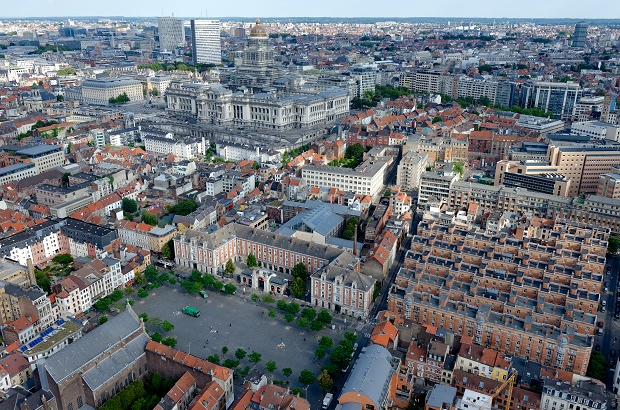- Daily & Weekly newsletters
- Buy & download The Bulletin
- Comment on our articles
City of Brussels approaches record population of 200,000
The latest population figures for Brussels-City show a record figure of 189,560, according to the Belgian National Register (1 November 2021), reports RTBF.
Although the register covers all categories, including foreigners and people waiting to be registered, the rise reflects a growing trend in the capital.
Following previous years of decline, the past 20 years have seen a steady increase in numbers, as confirmed by Belgium’s statistics office Statbel. There were 134,000 inhabitants in 2000, 143,000 in 2005, 157,000 in 2010, 175,000 in 2015, 185,000 on 1 January 2020 and almost 187,000 on 1 January 2021.
“Growth in Brussels has been very regular for 10 years with 30,000 additional inhabitants, or nearly 20% of its population,” says Jean-Pierre Hermiat, an expert at the Brussels Institute of Statistics (Ibsa).
One factor behind the rise is the number of births (2,486 in 2020) surpassing the number of deaths (1,496 in 2020), although this is not specific to Brussels, according to Hermiat.
He also highlights the popularity of the EU capital for expats. “The city is very attractive at the international level. There are many more people settling in Brussels than people who leave the city for abroad. The gain, each year, is about 3,500 inhabitants.”
Another reason is the city’s capacity to absorb demographic growth. Over the past 10 years, new housing in Neder-over-Heembeek and Haren has contributed to the overall population rise, says Hermiat.
“But the phenomenon also applies to the pentagon, the historic heart of the city. Previously depopulated, it has been regaining inhabitants for about twenty years,” due he believes to the transformation of offices into housing.
The forecast for the future
Ibsa forecasts continued demographic growth in the entire Brussels Region to reach 1,288 million inhabitants by 2050 (1,219 million in 2021).
But Hermiat admits any predictions for the city of Brussels are complicated. “Many factors come into play in the analysis with elements that are not very visible. I am thinking of international migration, the most important factor, but undoubtedly the most unpredictable element. The coronavirus pandemic has had a strong impact on international migration in 2020,” he says.
Nevertheless, the city of Brussels is likely to reach a population figure of 190,000 within a few years. Looking ahead, “space is not infinite, the population cannot grow indefinitely,” especially if the local authorities are keen to provide a certain quality of life in the different neighbourhoods, concludes Hermiat.
Photo: Global view of the Marolles © visit.brussels/S Schmitt



















